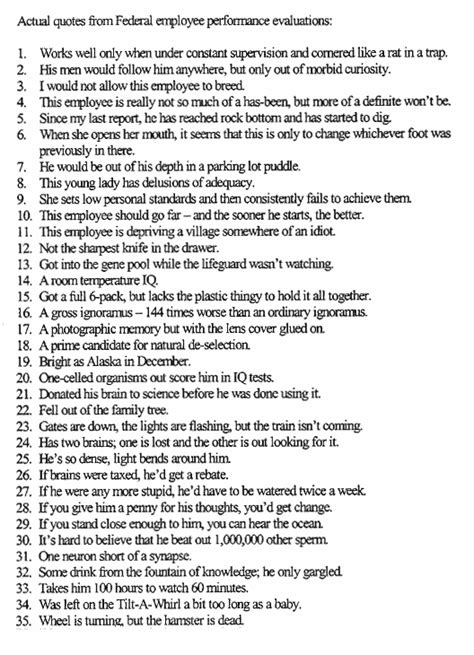Effective Performance Evaluation Phrases: 45 Examples In English

Performance evaluation is an important tool for managers to assess the progress and development of their employees. It is also an opportunity for employees to receive feedback on their performance and set goals for future improvement. However, the process can be challenging, especially when it comes to finding the right words to express constructive criticism or praise. In this article, we provide 45 effective performance evaluation phrases that can help managers provide valuable feedback to their employees.
1. Introduction
Performance evaluation is an essential part of the employee management process. It allows managers to assess their employees’ performance, identify areas for improvement, and provide feedback to help them grow and develop. However, it can be challenging to find the right words to express feedback constructively.
2. Importance of Performance Evaluation
The importance of performance evaluation cannot be overstated. It is a critical tool for managers to evaluate their employees’ performance, identify areas of strength and weakness, and provide feedback and coaching to help employees grow and develop. Performance evaluations also help employees understand how their work contributes to the organization and set goals for future improvement.
2.1 Benefits of Performance Evaluation
- Improves employee performance
- Identifies areas for improvement
- Provides feedback and coaching
- Helps employees set goals for future improvement
- Increases employee engagement and satisfaction
- Supports career development
3. Effective Performance Evaluation Phrases
Here are 45 effective performance evaluation phrases that can help managers provide valuable feedback to their employees:
3.1 Communication
- The employee communicates effectively with colleagues and clients
- The employee actively listens to others and responds appropriately
- The employee expresses ideas clearly and concisely
- The employee uses appropriate tone and language in communication
- The employee provides timely and relevant information to colleagues and clients
3.2 Collaboration
- The employee works well in a team environment
- The employee contributes to team goals and objectives
- The employee respects and values diverse perspectives and ideas
- The employee provides constructive feedback to team members
- The employee shares knowledge and expertise with the team
3.3 Problem-solving
- The employee identifies problems and proposes solutions
- The employee uses critical thinking and analytical skills to solve problems
- The employee seeks input and feedback from others to solve problems
- The employee follows through on solutions and monitors outcomes
- The employee learns from past mistakes and applies lessons learned
3.4 Initiative
- The employee takes initiative to complete tasks without being prompted
- The employee seeks out opportunities to learn and grow
- The employee proposes new ideas and solutions
- The employee takes on additional responsibilities willingly
- The employee shows enthusiasm and motivation to do their best work
3.5 Adaptability
- The employee adapts to changing circumstances and priorities
- The employee remains calm and focused under pressure
- The employee is open to feedback and willing to make changes
- The employee embraces new technology and processes
- The employee demonstrates flexibility and willingness to take on new challenges
4. Conclusion
Performance evaluations are an essential tool for managers to assess employee performance, identify areas for improvement, and provide feedback and coaching to help employees grow and develop. By using effective performance evaluation phrases, managers can provide constructive feedback that helps employees achieve their goals and contribute to the success of the organization.
5. FAQs
5.1 What is a performance evaluation?
A performance evaluation is a process in which a manager assesses an employee’s job performance and provides feedback and coaching to help the employee grow and develop.
5.2 How often should performance evaluations be conducted?
Performance evaluations should be conducted at least once a year, but can be done more frequently depending on the organization’s needs.
5.3 What should be included in a performance evaluation?
A performance evaluation should include an assessment of the employee’s job performance, feedback on areas for improvement, and a discussion of future goals and objectives.
5.4 How can I provide constructive feedback in a performance evaluation?
To provide constructive feedback in a performance evaluation, focus on specific behaviors and actions, provide examples to support your feedback, and offer suggestions for improvement.
5.5 What are some common performance evaluation mistakes to avoid?
Common performance evaluation mistakes include using vague or overly critical language, focusing on personality traits instead of job performance, and failing to provide specific examples to support your feedback.
